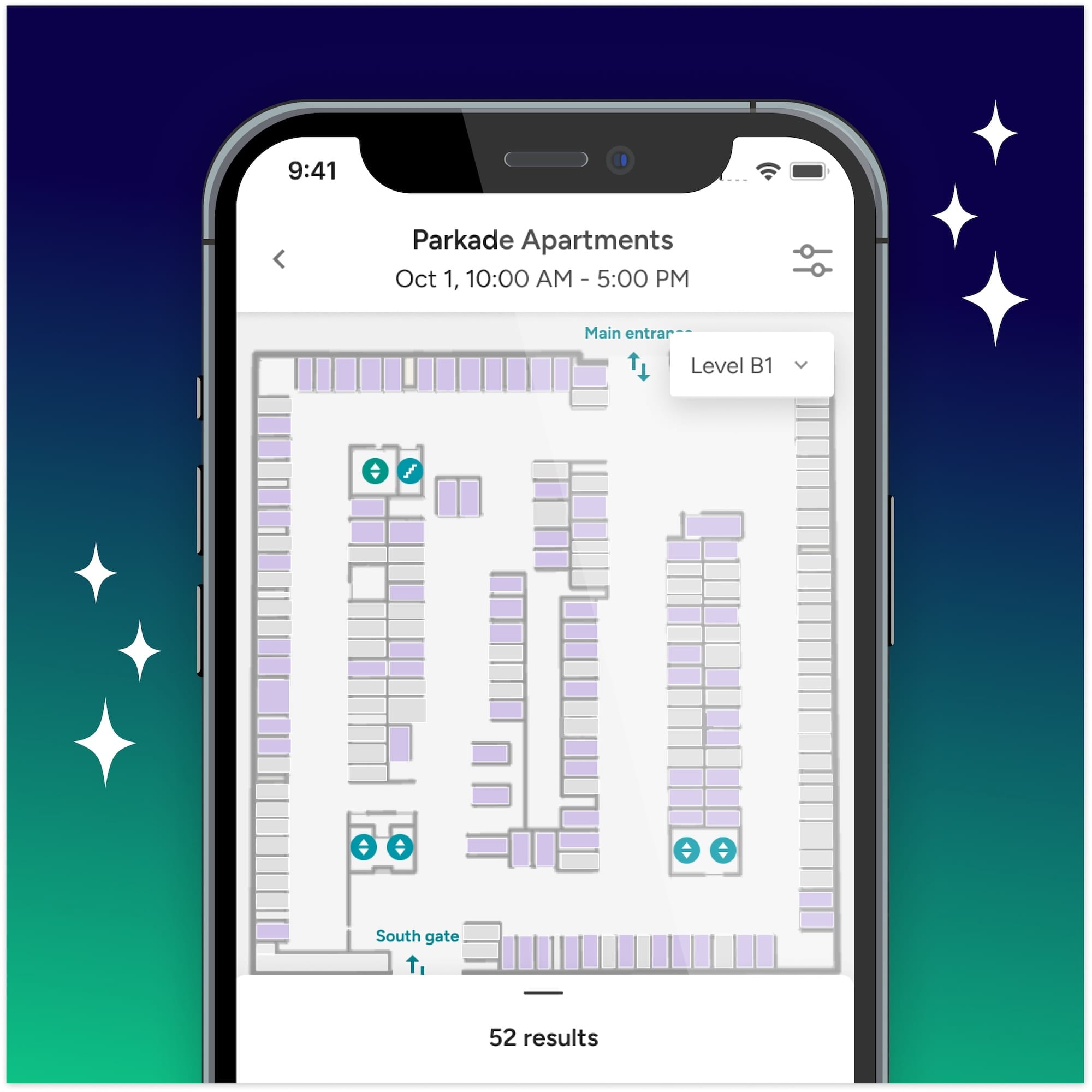

TABLE OF CONTENTS
Artificial intelligence isn’t only infiltrating more traditionally tech-driven industries. While that may have been the case in 2022 or even last year, now it’s beginning to become more commonplace in even the most unexpected industries.
And one industry that’s ripe for AI-driven improvements is the property management space.
We talked a few months ago about how shrinking on-site teams are becoming the norm in multifamily properties. That means that fewer people are responsible for a growing list of tasks. This points to a clear need to make sure that your processes are as efficient as possible and shift tasks to technology where possible.
That’s why nearly half of a sample of 5,300 property managers who were surveyed said that they currently use AI or plan to use it in the near future.
By using AI, you can not only eliminate expensive inefficiencies, but you can also actively improve your employee experience. The same study mentioned above found that the boosts in employee experience is one of the most valuable benefits of implementing AI in property management.
In businesses that operate primarily online, it’s very clear how AI can be helpful. And though the use cases might not be quite as obvious in property management, they definitely make up a growing list.
Generative AI tools like ChatGPT or DALL-E quickly became the darlings of AI technology for everyday users. As soon as they hit the market last year, people latched on quickly. The possibilities are endless for how you can use these tools to improve your marketing campaigns.
Multifamily marketing teams use generative AI tools to create solid first drafts for written content like emails or social media posts, giving them an easier starting point than a blank page. You could also use them to generate original graphics for social media or your website.
Another valuable marketing use case for AI is to use it to brainstorm innovative marketing campaigns. Especially in times where you need to experience rapid growth, like a lease up, it can be hard to know where to even start brainstorming. By using the right prompts and plugging in many specific details about your property, you can generate a long list of great ideas to narrow down.
You can either use standalone tools like ChatGPT or look into areas in your existing marketing technology stack where AI has been integrated. For example, many marketing platforms like Hubspot have opportunities to use AI to generate copy for emails, social media posts, or blogs baked right in.
In a similar vein, you can also use generative AI tools to help streamline resident communication.
One property manager shared with us:
“I've been using it for various tasks such as drafting emails, resident event ideas, creating flyers and notices, and answering questions from residents, etc. It's incredibly helpful and saves me a lot of time. All you have to do is give it detailed information about the kind of response you want, and it will generate it for you.”
Predictive maintenance systems grab data from sensors, monitoring setups, and old maintenance logs. They use smart tools and machine learning to spot issues that might lead to equipment breaking down. When they find something off, they alert the managers to fix it before things go wrong.
You can use this to monitor things like your HVAC systems, elevators, plumbing, electric systems, security tech, and appliances. While not the most exciting use case of AI in property management, it can be foundational to a smoothly operating property.
Being proactive and staying on top of any potential issues leads to a better overall experience for your residents. With predictive maintenance, they are less likely to be inconvenienced by breakdowns than they would be if you took a reactive approach.
Some popular tools to leverage predictive maintenance are HappyCo, Mezo, and Lessen.
According to recent research, quickly responding to inquiries from prospective tenants can increase lead conversion rates by almost 400%. And the opposite is also true. If you take more than 1-2 minutes to respond, their chance of converting drops to 40%. Wait 30 minutes, and it drops to just 10%.

In a non-AI world, it’s nearly impossible to reliably have someone at the ready to respond within seconds. This is where AI in property management can really shine.
AI tools like chatbots help to take over basic conversations to give immediate attention to people actively looking to engage with your team. Even if it’s at 2 in the morning or on a holiday.
There’s a growing list of options for you to choose from for an AI chatbot. Some of the most popular are MeetElise and REDD, which is Entrata’s chatbot, and Conversion Logix. Although the experience may vary slightly from one bot to the other, they all essentially give you access to a 24/7 live chat, lead nurturing flows, and sometimes lets people take actions for automation solutions, like scheduling an appointment.
The hand-off from chatbot to a human agent can be seamless, helping you take advantage of the efficiency of AI without losing the human aspect. One property manager told us:
“Meet Elise handles all email leads. The only time we take over is if she assigns to the property for a question she can’t answer. For the majority, we just keep the lead. We get very few. You could always answer the question and then reassign it back to Meet Elise.”
Your virtual leasing agents powered by AI can handle more than just the communication duties, though. You can also shift some of the logistical duties off the plates of your team. For example, you can use AI to handle tenant screening and background checks as well as automate the creation of lease agreements.
Handling and analyzing data is often extremely time-consuming and difficult. These barriers often lead to valuable data going to waste, simply because there aren’t team members available and knowledgeable to dig into analyzing it.
AI can totally simplify and streamline your data processes.
One data-driven use case of AI in property management is analyzing survey results. We talked last week on the blog about the best questions to include on your resident satisfaction survey, but many teams may get stuck on what to do with all of the responses. Using AI data analysis tools, you can get custom recommendations for action based on the data required.
You can also use AI tools for financial forecasting and planning. By leveraging large datasets that take into account market trends, economic indicators, and historical performance, you can predict a variety of factors like occupancy levels, operating expenses, and future rent prices with a surprising degree of confidence. These forecasts, as well as benchmarking, can help you make better decisions by letting you stay on top of any evolving factors.
You can also leverage AI to maintain control of internal considerations. When you connect powerful AI tools to things like your utility trackers or your accounting records, it’s easy to notice any irregular spikes or dips quickly.
If you’re at a property that hasn’t upgraded its old-school operations, making the jump to AI may be a little daunting as a first step. However, to stay competitive, it’s vital to leverage technology to some extent so you can stay efficient and keep data accurate.
So take this as your sign: If you’re still using pen-and-paper methods to manage your property, it’s time to pull your team into 2024.
Here are some common areas that properties tend to lag behind on, making them ripe for tech disruption:
So whether you dive right into using AI in your property management operations or take baby steps by just starting to digitize your biggest headaches, an investment in innovative new technology helps to orient you to a brighter, more profitable future.
.jpg)
As parking management becomes increasingly digital, security becomes critical — and we’re excited to share that we've achieved a major security milestone.
Read Story
We’re thrilled to announce one of our most significant leaps forward this year: the launch of dynamic maps across our mobile and web applications.
Read Story
Now that AB 1317 is official, it’s time to brush up on the requirements and see how your properties stand to benefit.
Read Story